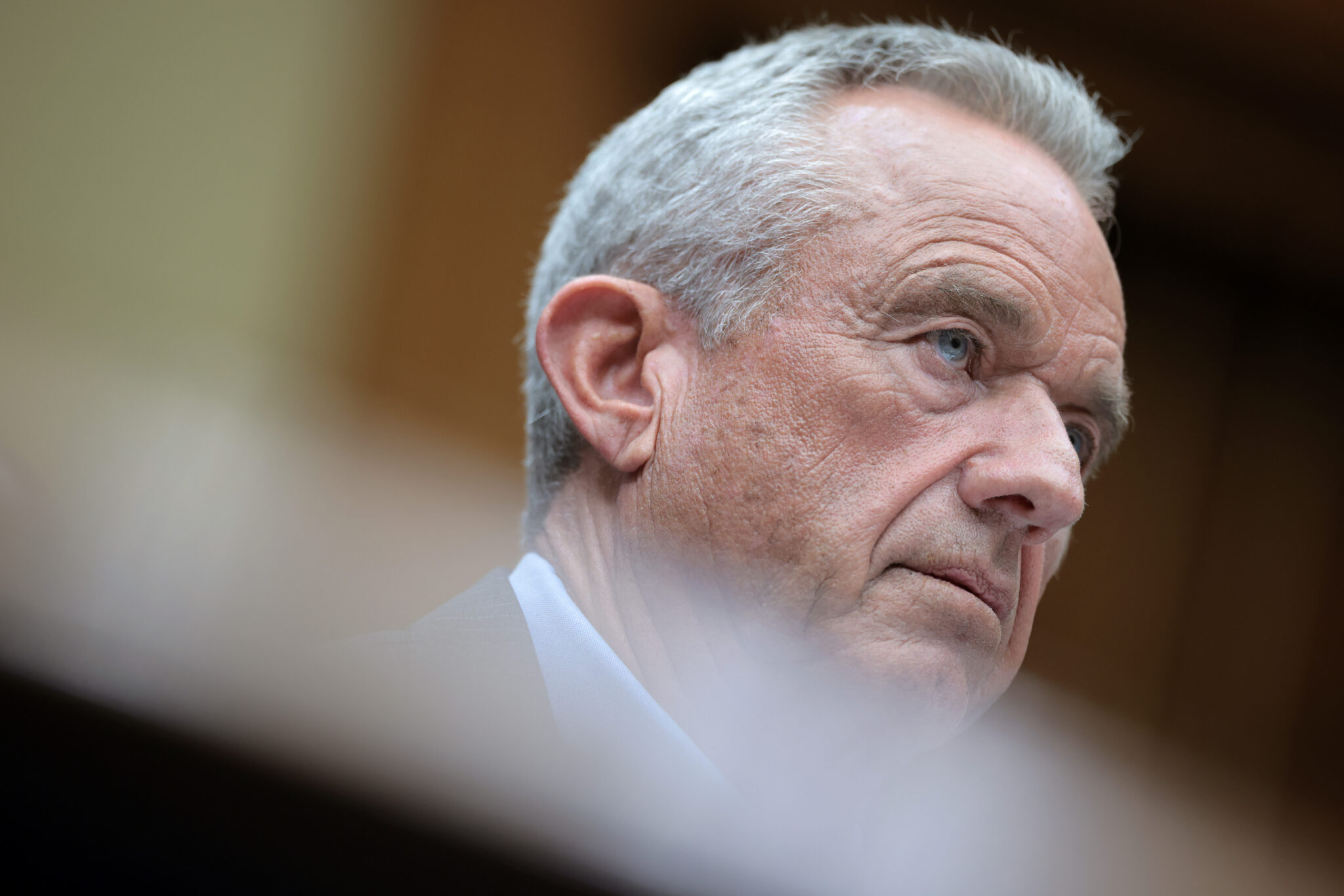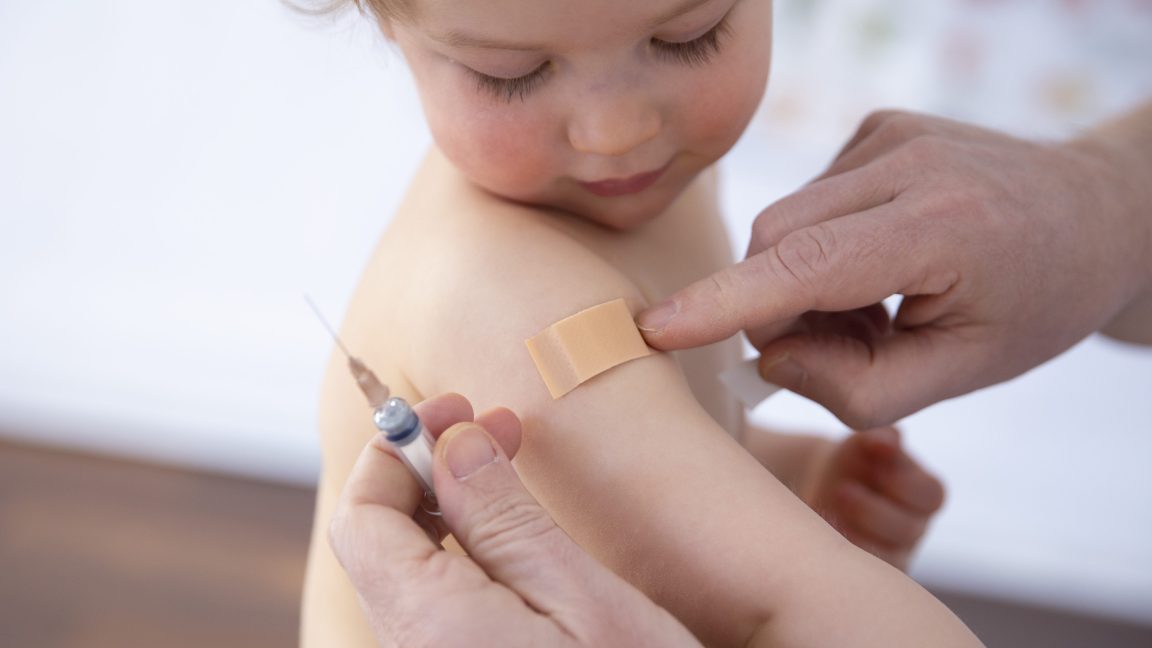Controversy and Debate on Vaccines at Senate Hearing Spark Tough Questions and Criticism

Introduction
The recent hearing on vaccines and more has sparked controversy and debate among Senators from both parties. The health secretary, RFK Jr., faced tough questions and criticism from lawmakers, challenging him to defend his actions and policies. The hearing, held by the Senate health committee, focused on issues such as vaccines access and leadership at the Centers for Disease Control and Prevention (CDC).
Challenging Questions and Criticism
The Senators did not hold back in their questioning, as they demanded explanations for RFK Jr.'s decisions on vaccines and other health matters. Some lawmakers accused him of neglecting the importance of vaccines and undermining the CDC's authority. They also raised concerns about the lack of access to affordable vaccines for low-income families. The health secretary was put on the spot to justify his actions and policies, which have been met with widespread criticism and backlash.
Controversy and Debate
The heated hearing has brought attention to the ongoing controversy and debate surrounding vaccines and healthcare policies. Some believe that RFK Jr.'s views on vaccines and his actions as health secretary are not in line with the scientific evidence and the best interests of the public. Others argue that his policies and decisions are necessary to protect individual rights and freedoms. As the debate continues, the role of the health secretary and the importance of vaccines and healthcare policies remain at the forefront of discussions among lawmakers and the public
About the People Mentioned
RFK Jr.
Robert F. Kennedy Jr. (born January 17, 1954) is an American environmental lawyer, author, and politician serving as the 26th United States Secretary of Health and Human Services since February 2025. He is a member of the prominent Kennedy family, the son of Robert F. Kennedy, former U.S. Attorney General and senator, and the nephew of President John F. Kennedy. Kennedy began his career as an assistant district attorney in Manhattan in the early 1980s. After overcoming personal struggles with substance abuse, he shifted focus to environmental law, joining nonprofits such as Riverkeeper and the Natural Resources Defense Council. In 1987, he became an adjunct professor of environmental law at Pace University School of Law and founded Pace’s Environmental Litigation Clinic. In 1999, he founded the Waterkeeper Alliance, a global clean water advocacy organization, which grew into the world’s largest network of water protection groups. His environmental work earned him recognition including TIME magazine’s “Hero for the Planet” for his role in restoring the Hudson River. Kennedy has led successful lawsuits against major corporations like Monsanto and DuPont concerning environmental pollution. He also founded Children’s Health Defense, an organization focused on childhood health and environmental exposures. Kennedy’s career has been controversial due to his promotion of vaccine misinformation and conspiracy theories since 2005, including discredited claims linking vaccines to autism and promoting COVID-19 vaccine skepticism. These positions have drawn widespread criticism from public health experts. In the 2024 presidential election, Kennedy initially ran as a Democrat before running as an independent and later endorsing Republican Donald Trump. His appointment as Secretary of Health and Human Services under the Trump administration began in early 2025, marking his current role in public health policy. He has authored several books, including *The Riverkeepers* (1997), *Crimes Against Nature* (2004), and *The Real Anthony Fauci* (2021), reflecting his environmental and health advocacy. Kennedy is married to actress Cheryl Hines and has seven children from previous marriages[1][2][3][4][5][7].
About the Organizations Mentioned
Senate health committee
## Overview and Mission The United States Senate Committee on Health, Education, Labor, and Pensions (HELP) is a pivotal legislative body responsible for shaping U.S. policy across four of the nation’s most critical sectors: health care, education, labor, and retirement security[4][7]. Its broad jurisdiction includes oversight of major federal agencies like the Food and Drug Administration and the Centers for Disease Control and Prevention, making it a central forum for debates on public health crises, workplace safety, education reform, and retirement benefits[4][7]. The committee’s work directly impacts millions of Americans, influencing everything from child care funding and student loans to prescription drug safety and Medicare services[1]. ## Historical Evolution The committee’s origins date to 1869, when it was established as the Committee on Education before expanding in 1870 to include labor issues, becoming the Committee on Education and Labor[6][7]. Its focus broadened further in 1944 with the addition of public health matters, and after several name changes, it was officially renamed the Health, Education, Labor, and Pensions (HELP) Committee in 1999 under Chairman James Jeffords[6][7]. Throughout its history, the committee has been instrumental in landmark legislation, including the creation of the Department of Labor, the establishment of a federal minimum wage, and the passage of the National Labor Relations Act[6]. ## Key Achievements The HELP Committee has a strong track record of bipartisan achievements. In recent years, it has passed significant legislation such as bills to expand child care access for 1.5 million children, reform student loans for over 9 million borrowers, and enhance prescription drug safety[1]. During the 117th Congress, the committee produced 20 public laws, most focused on health care, and held over 50 hearings on critical issues[3]. Historically, the committee has also played a role in creating federal health, welfare, and education programs,
Centers for Disease Control and Prevention (CDC)
The **Centers for Disease Control and Prevention (CDC)** is a premier U.S. public health agency founded on July 1, 1946, evolving from the World War II Malaria Control in War Areas program. Initially focused on controlling malaria in the southern U.S., the CDC quickly expanded its scope to tackle a wide range of communicable diseases, chronic conditions, injuries, environmental health, and bioterrorism threats[2][4][7]. The CDC’s early years were marked by crucial public health interventions, including investigating the 1955 polio vaccine contamination and managing influenza epidemics, which established its credibility and secured its survival during periods of limited federal support[1]. Over decades, it grew from a small malaria control unit with a $1 million budget and 369 employees into a vast organization housing over 200 specialized laboratories and multiple advanced biosafety level 4 labs[5]. Its mission encompasses detecting and responding to emerging health threats—such as COVID-19—tackling leading causes of death like heart disease and cancer, promoting healthy communities, and developing the public health workforce. The CDC serves as a critical scientific research hub and a primary communicator of health information to the public and policymakers[7]. Notable achievements include pioneering “shoe-leather epidemiology,” which involves on-the-ground disease investigation, and contributions to vaccine safety, infectious disease surveillance, and public health guidelines that have shaped global standards[1][5]. The agency’s headquarters in Atlanta, Georgia, symbolizes its roots in southern malaria control but now supports global health efforts with offices across the U.S. and overseas[2][6]. Today, the CDC remains a magnet for multidisciplinary experts—physicians, epidemiologists, microbiologists, social scientists—working collaboratively to address complex health challenges. Its evolution from a wartime malaria control program to a comprehensive disease prevention powerhouse highlights its vital role in safeguarding public health and advancing biomedical science through cutting-edge technology and research[4][















